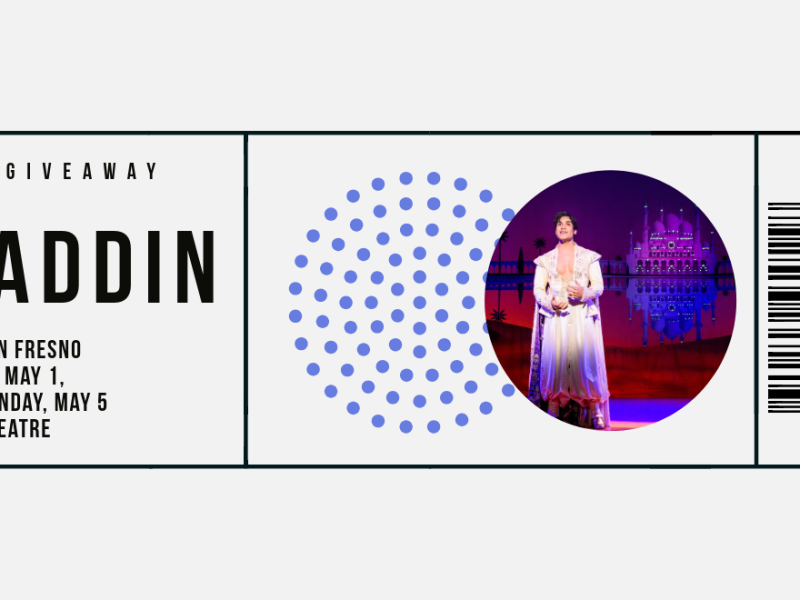From Ecuador to Fresno: ‘Just Like Us’ introduces student to America’s DACA woes
Karen Zacarías’ play “Just Like Us” debuted in 2013, which in our politics-at-light-speed era feels like decades ago. But its story of four Latina teenage girls living in Denver — two of them are documented, and two are not — is just as timely as ever, alas. (Probably more so.)
The play, which is based on Helen Thorpe’s bestselling book, opens Friday, Oct. 26, at Fresno State’s Woods Theatre. It’s directed by Gina Sandi-Diaz.
Pictured above: Saywa Chuji appears in ‘Just Like Us.’ Photo: Fresno State
For Saywa Chuji, who plays one of the undocumented friends, the production has been an intense experience. She come from a small indigenous community in the highlands of Ecuador, and she’d never heard of the Deferred Action for Childhood Arrivals program until last year, when she came to Fresno State.
I caught up with Chuji to ask about what it’s like to be part of “Just Like Us.”
Q: Tell us about your character, Marisela.
A: Her personality is very colorful and extroverted. I can say that Marisela enjoys life and has fun with her friends at all moments. She is also very emotional, energetic, passionate and a strong woman who wants to change the world. She is also aware of her dangerous situation in the United States, and realizes that this situation has to change. Marisela is optimistic and the one who takes the initiative within the four girls to let their voice be heard.
Q: The play is described as a “documentary drama.” Is it based on real people?
A: Yes. Their names were changed for the sake of privacy. Their story took place around 2001, when the DREAM Act was first introduced.
Q: “Just Like Us” was written in 2013. It must feel sometimes like current events have overtaken the message of the play. What is it like performing it in 2018?
A: The meaning of the story is still the same. The DREAM Act and DACA program are still uncertain. There is racial discrimination towards people of Latino descent. Many people still don’t understand the reasons and situations of why immigrants come illegally to the U.S. Although DACA has helped thousand of immigrants live out of the shadows and fear, President Trump is attempting to end this program, which would leave people again in precarious situations. Performing this play in 2018 enables today’s society to understand past and current issues.
Q: There is tension between the girls in the play based on immigration status. Have you experienced this in your life, either directly or indirectly?
I have experienced this tension indirectly. Members of my family immigrated to Germany and the United States illegally. I heard their experiences of fear and precarious situations trying to strive in their economy. My mother was also going to take the decision of immigrating to Europe, and the decision provoked in me sadness and fear. Fortunately for me she did not make that decision. I think that living on illegal immigration status does not permit you to live a peaceful The struggles in a foreign country where there is racism is difficult and complicated.
Q: Anything you’d like to add?
A: I would like people to understand the reasons why immigrants take the decisions of leaving their countries. For instance, I come from a small indigenous community named Chibuleo in the Highlands of Ecuador. The economic status for most of the indigenous people is low. My family itself is very humble. My grandparents were very poor. My grandfather studied high school thanks to the Christian priests, and my grandmother did not now how to read. They lived based on agricultural income but worked hard to send their five children to school, but could not afford university.
That is why my aunt and uncle decided to immigrate to developed countries — to economically help their children who stayed in Ecuador. My mom was the only one of the family who went to college. She was a single mother. She is my inspiration and source of strength. Thanks to her I was able to get a scholarship to study abroad here in Fresno State.
However, I want to point out that I am one in a thousand indigenous people who get this opportunity. I want to clarify that the education level for most indigenous people is low, many people are still uneducated, and their economic status is not enough to send their children into private universities.
I hope my story helps the audience to understand the millions of different stories of immigrant families around the world. There are worse and better situations than mine, but all of them are connected by the desire of seeking a better quality of life for their children.











Jackie Ryle
Thank you, Donald. As always, this makes me look forward to seeing the play. It’s so good to have this inside look in advance